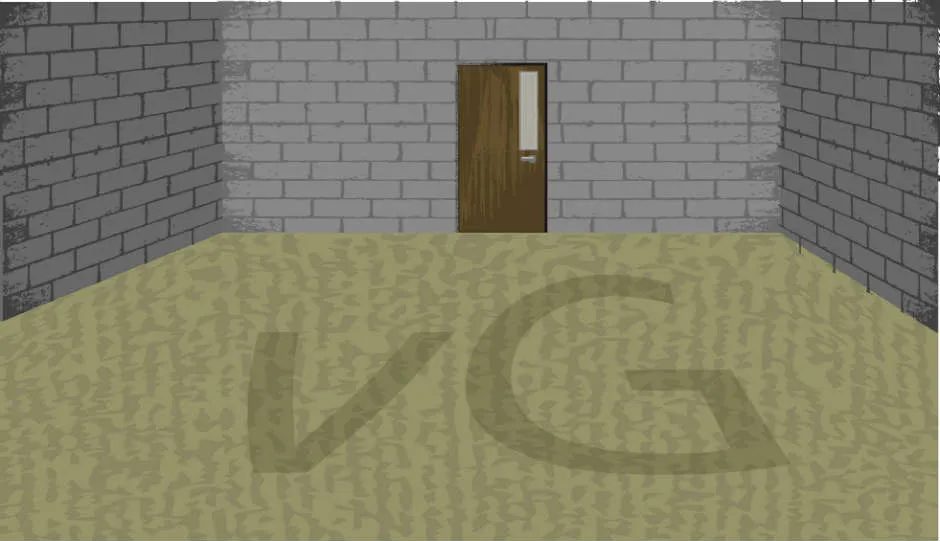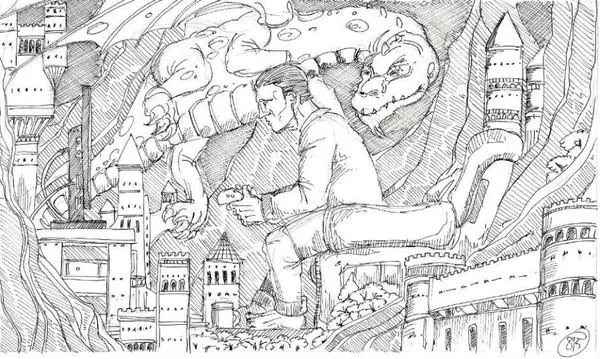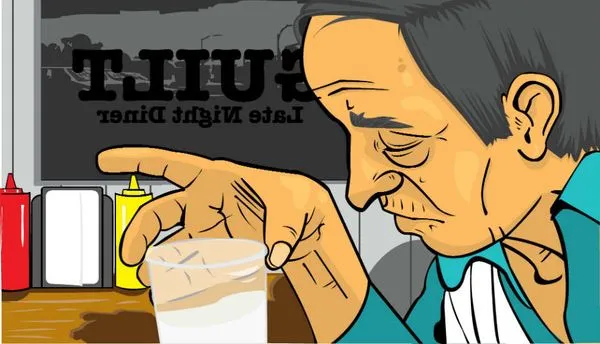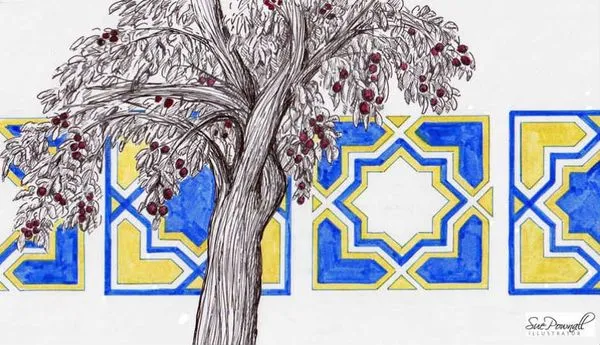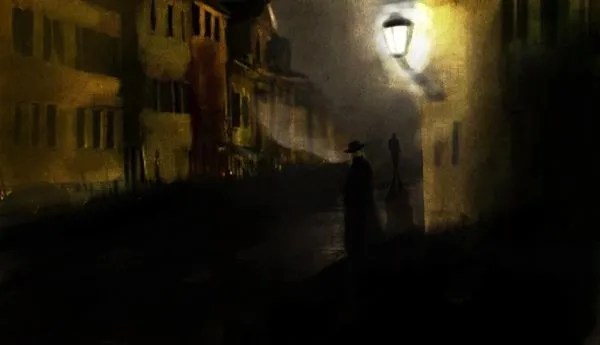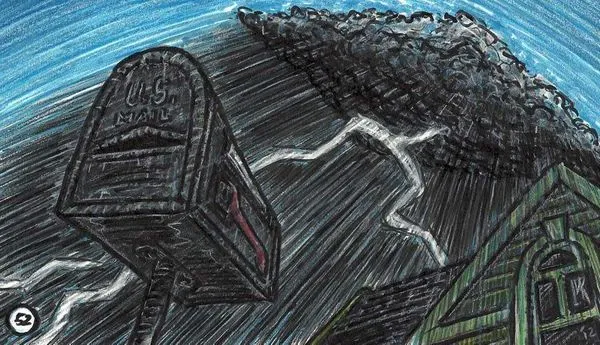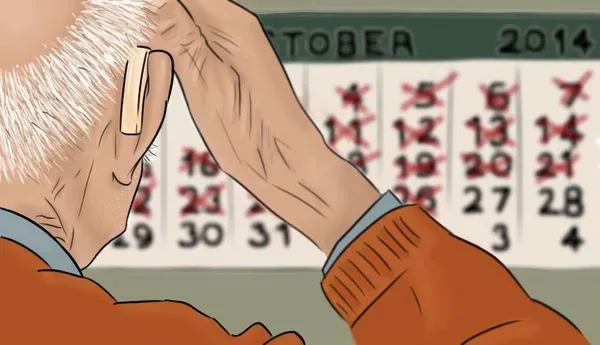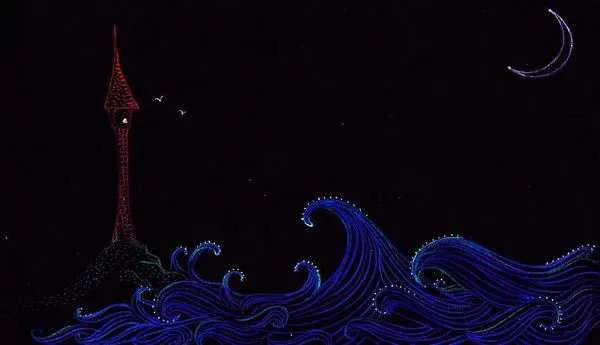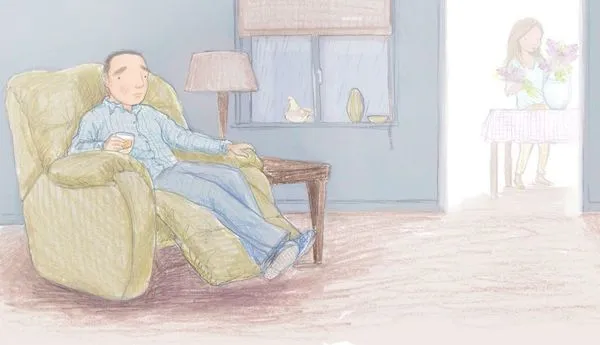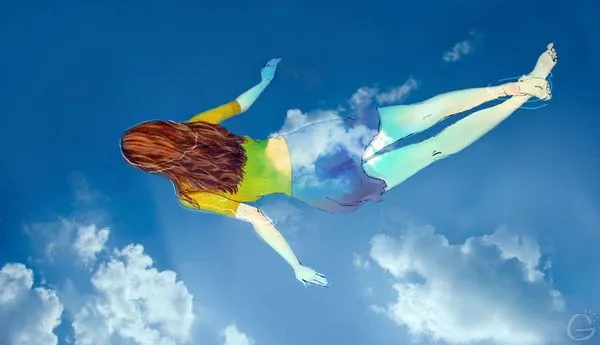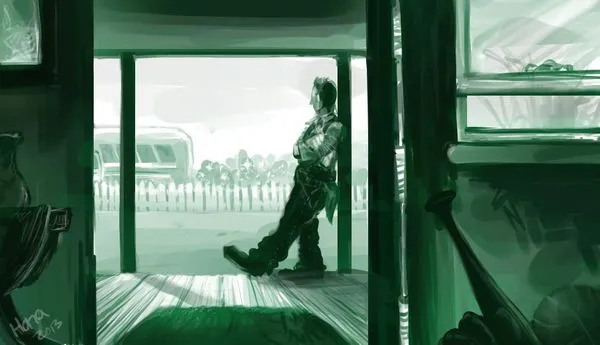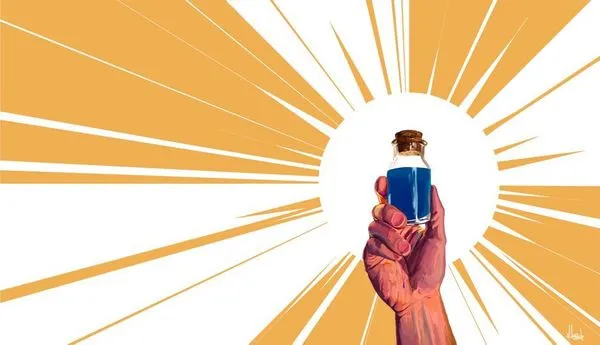Even Rat Pups Laugh Once In A While Part 5
Published on 2013-06-29
Shift Transition
Departing Custodian: Mr. Stuart
Arriving Custodian: Mr. von Grawbadger
Esteemed Colleague,
Approximately noon today I was treated to that rarest of spectacles: A ballast explosion. I was about to sit down to partake of my lunch in the faculty cafeteria when it blew. Now, you may have seen one or two of these over the course of your long and illustrious career on the graveyard shift, but I have to tell you if you haven’t seen one of those things rain a shower of sparks onto the heads of a gaggle of teachers, you have not lived. It is really something to see those battle-hardened troops on the front line of our great nation’s efforts to educate its spawn scatter upon a misting by a harmless quantity of PCB’s and mercury. You’d think somebody had tossed a live grenade into their midst. Hilarious!
Anyway, my preoccupation with the well-being of our new family prevented me from buffing the carpet beneath the failed ballast, which means that throughout the afternoon our faculty and staff have been needlessly exposed to chemical hazard. In the interest of preserving the health of our faculty and staff, I implore you to please buff the carpet.
Thank you, and Regards.
Thursday — A Shipwrecked Tampon
Just as Stu pulled open a drawer to the filing cabinet directly behind the desk, First Bell clanged. The students had five minutes to get to their classrooms. He spent the five minutes admiring von Grawbadger’s handiwork with the rat cage, finally commending the graveyard shift janitor with, “You have been a busy beaver.”
The bell clanged again, signaling to Stu that the hallways ought to be clear. He decided that before he performed any of his morning routine he’d inspect von Grawbadger’s work beneath the failed ballast, so he headed out for the teacher’s lounge. He was relieved to find it empty when he arrived there.
He stood a little distance from the spot directly below the tiles Tim had fallen through the day before. They were damaged, but not distracting. Teachers entering the lounge that day and forward had little reason to look to the ceiling.
He squinted at the carpet.
Nothing.
He stooped.
Still nothing.
He knelt. He got down on all fours. He stood back up, circled the area hoping to catch the light at just the right skew. He stood on a chair.
He left the lounge to begin his morning routine in the Commons. On his way to pick up the custodial cart from a closet he began considering the question of whether von Grawbadger’s habit of signing ‘vG’ in the carpet with the buffer was laudable or pathetic. The debate kept his mind occupied until he decided, near the end of the period, that it would be admirable until it became pathetic, most likely by means of its discovery after some crippling accident brought on by a lapse in von Grawbadger’s attention while executing the maneuver meant to glorify the man and his work.
He smiled just a little for contriving von Grawbadger’s petition for Workman’s Comp.
“Mr. von Grawbadger, please describe what you were doing when you lost control of the floor buffer.”
“I don’t know how to describe it, exactly. Everything happened so fast. I finished buffing the carpet. So I did what I always do when I’m done buffing the carpet. Done it a thousand times before. I signed it with my initials.”
“You … “
“Signed my initials, yeah. In the carpet. Well, I tried to. It’s not easy. That buffer’s heavy. It’s like Lindy Hopping with a hippopotamus — a hippopotamus with an extension cord up its butt. I guess this time the hippo’d finally had enough of me being so clumsy, so she stomped on my head.”
“Signing your … why the hell would you do that?”
The bell clanged, depriving Stu of the answer. He pressed his back against the wall, resting a hand on his cart while waiting out the students coursing through the commons. Pinned there he realized he had the power to make two people happy, and that he would exercise it: He would show von Grawbadger’s improvements to the rat cage to Shelly. Then he’d tell von Grawbadger that he’d done so.
From out of the crowd came Miss Johnstone. She was walking briskly toward him.
“Good morning, Stu! Can you come with me? There’s a problem with the girls restroom.”
“Good morning to you, Miss Johnstone.” He pushed off the wall, fell in beside her. “Is there a hole in the ceiling?”
“No — wait.” She considered. “No, I don’t think so.”
“You sure? It wouldn’t have to be a big hole — you could’ve missed it. If there’s one in there, it’s most likely to be over a toilet. Did you look over the toilets?”
“I don’t think I looked at the ceiling at all.” When next she asked, “Why would there be a hole in the ceiling of the girls restroom, Stu?” she seemed ready for a confrontation.
He pointed up without breaking step. “Tim’s been in the drop ceiling.”
She looked up. “Oh? Who’s Tim?”
He decided it was pointless to describe Tim. “Just a boy. A boy who knows how to get around up there. And who wants to see a girl pee.”
She laughed. “That’s a relief. I thought you were going to say the hole was for a camera.” Then after a couple steps she became serious. “I would quit, Stu.”
“And I would miss you, but I doubt the district would.”
She put a hand on his shoulder as they walked. “I understand what you’re saying. Thank you. I would miss you, too.” Then she brightened. “Let’s look together!”
He clapped his hands once. “Let’s!”
They had arrived at the restroom just as a pair of girls was leaving it and just as one girl was saying to the other, “So gross.”
Second Bell rang. “Get to class, girls,” Miss Johnstone admonished them.
Stu watched them go. “So what’s the problem?”
“You need to see it for yourself.”
At the restroom door, she put a hand up. “Stu, I didn’t get a chance to apologize yesterday.”
“No apology necessary, Miss Johnstone.”
“Yes, it is necessary. You were right to do what you did, to say what you said. It was honest, and I think Shelly realized that. She appreciated it. She says she learned from it.”
“You’re making my day, Miss Johnstone.”
“She wants you to meet her dad.”
“Oh … no.”
“Oh yes. And she will bring a gift to you today. After lunch.” She smiled then pushed through the door.
After a short delay he heard her call. “All clear, Stu!”
He entered a sanctum tiled on every surface except the ceiling in salmon pink. Three stalls of deep red brought the only visual interest. Stu stuffed his hands into his pockets against a cold that prevailed despite the tones’ promise of warmth. Miss Johnstone stood, arms folded, just outside the center stall door and inspecting the ceiling over it. “I don’t see a hole, Stu. How small would it be?” At her feet a trail of wet paper towel led from under the stall door to the floor drain.
“It’d be big enough for you to see. If you don’t see it, it’s not there.” He spied markings on the center mirror in a bank of three directly opposite the stalls. He placed himself before it and stooped some to center his face in it.
“Festive, eh?” He smiled weakly at himself. “Except the color. Poor choice. It’s pretty drab: Maroon to brown?”
“Oh my god, Stu. You truly are a wonder of nature.”
“The brush strokes lack coherence. Applied with deliberation, but no confidence. I’d say she has vision, but her talent isn’t developed enough to convey it.”
Miss Johnstone’s reflected image spoke to him. “Before you go on, you should see this.” She opened and held the door to the stall at the head of the paper towel trail, the center stall.
Stu moved to it. Pretty clearly the toilet had overflowed. Nothing special about that. He looked into the bowl for the cause. There he found it.
It might have been art once. Stu pictured it as the artist must have seen it in the moments before its desecration by means of the flush: An inviting bed of fluffy white toilet paper and reinforcing brown paper towel, framed in thick black by the toilet seat which, he convinced himself, had the shape of a young heart pulled hard in a direction and for a distance it was never meant to go. At the center, buoyed by the conspicuously wasteful quantity of mixed paper, rested a spent tampon exhausted by its recent travail.
Though the meaning, and therefore the appeal, of the work escaped him, Stu understood that somewhere there was an audience for a bloody tampon bobbing in a toilet bowl. But that audience had missed the work in its full glory. All that remained to be seen was the sad, sodden artifact of its brief existence. The supporting water had left the bowl. The paper mixture stuck wet and flat against the sides like a failed adventure in papier-mâché. The tampon lay wrecked and abandoned in the bowl’s throat.
A realization struck Stu. “Oh! So she used that,” he pointed to the tampon, “to do that?” He pointed to the mirror.
“I think so, yes.”
“Any idea who it might be?”
“Nope.”
He saw faint prints on the sink beneath the mirror. “She’d be the one with a bloody hand, I suppose.”
“Please, Stu, she would’ve washed.”
“She might’ve wanted to,” he nodded to the sink, “but to keep her hands under that cold water for as long as it would take to disinfect them she’d need a lot of fortitude.”
Miss Johnstone pointed agitatedly to a faucet. “She’s disturbed, not stupid. She would’ve used the hot water.”
“No, ma’am.” Stu gave the neighboring sink’s hot water valve a twist. No water of any temperature came forth. “Principal Rhee ordered the hot water to the student restrooms shut off at the beginning of the school year.”
“What!?”
He closed the valve. “Seems cruel, but it makes sense to the bean counters. We’re pretty far from the boiler here, so to get hot water from a tap, you have to run gallons of cold water out of the pipes first. Wastes the water and the gas to heat it.”
She lowered her head, pinced her temples between a finger and a thumb. She sighed. He meantime put his face in the mirror again, but this time at a greater distance and off-center. He saw the stall, the toilet, Miss Johnstone, and his own smiling self. He looked into his reflected eyes for a half a breath. On exhale, he collapsed the smile and turned back to the toilet.
He looked to the tampon, followed the flow from the toilet to the drain, then looked up to the streaks on the mirror and on the surrounding wall. “Heavy month.”
“Very heavy, yes,” Miss Johnstone concurred, with some empathy.
“These tampons — they come with instructions, don’t they?” He pointed to the dispenser on a far wall.
She was looking now to the hot water valve Stu had twisted. “Um … “
“Maybe I should read them. Don’t they say how to dispose of them?”
“Honestly, Stu, I couldn’t tell you.”
“They should. This is not the right way to dispose of a tampon. All the usual problems with tampons in the plumbing get a lot worse with these damn low-flow toilets.” He gave the bowl a light but disdainful kick. He observed the toilet paper dispenser. Empty. “She ran out of toilet paper, so she mixed in some paper towels. That accounts for this,” he said, following the trail to the drain.
She rapped a clean sink on her way to the door. “I’m late for my class.”
“In her defense,” he started generously, “I don’t read instructions for things I use, either.”
“Thank you, Stu.”
He ran his eyes over the scene in the restroom for a minute or so, then opened the door to call her back with, “Before you go, I have something to tell you.” But she was already gone.
Shift Transition
Departing Custodian: Mr. Stuart
Arriving Custodian: Mr. von Grawbadger
Dearest friend and confidante,
I told you on my return from my vacation in Vietnam a few years back that in the forest surrounding Cu Chi tourists are given the opportunity to climb aboard a destroyed American tank. I have not told you however that at that site I volunteered to snap photos of a number of couples and families that chose to avail themselves of the opportunity for every member of their party to be included in their photos. I took my responsibility seriously. I framed photos from many challenging angles, my two favorite being from right at the end of the cannon toward the happy family on the tank and from the turret, looking down at the subjects, posed with their faces turned back over their shoulders. For the second angle I asked the other tourists mill about in front of the tank. One I posed popping up from a nearby tunnel entrance.
I imagined myself a photographer from LIFE magazine.
I framed photo after photo of tourists smiling as though their mount of the tank represented some sort of conquest until I had captured every last tourist there. I was enormously popular for having brought intriguing vision to their mementos.
When I’d snapped every last one of my fellow travelers in images I hoped would really capture the spirit of the place, one of them kindly offered to take my photo. As I handed him my camera, I realized I’d become a little sick.
I try not to be a hypocrite. If all that smiling in that place had sickened me, then for my own photo I should have covered my face with grime and sweat, thrown on a pith helmet taken from one of the nearby dummies posed as if still in combat, grabbed a gun from the firing range where you can shoot a Kalashnikoff for a dollar a round, stolen a cigarette from my guide and dangled it from my lips. But we had run out of time for dressing me up in period touches. So in my photo I am merely a grim civilian who appears not to be having a very good time in Vietnam, maybe for feeling the weight of a responsibility. Not so grim as to appear as though I’d just seen my best buddy impaled and writhing at the bottom of a pit about the depth of a grave, or my home and my children sleeping in it blasted to smithereens by a shell from the tank. But grim enough to satisfy me.
Anyway …
Vietnam was your war. Maybe it’s just as well I failed to dress up in the way I wanted to at the time. You would have regarded the photo as me pretending at the horror you experienced there. I pledge to you now never to molest your memory of your tours there with maudlin tributes. You may go on enjoying those memories as you have been, with no interference from me.
You might have hoped all those years ago that by the time of my son’s war the world’s civilizations would have advanced enough to do soldiers the simple courtesy of justifying their sacrifice with real purpose and benefits that accrue directly to them and their families, but no. Not to be.
Iraq has been such a disappointment. Except in that one of its outcomes will be my grandson will never go to war. Because thanks to it, and to a tragedy similar to the one memorialized in the Cu Chi forest, I will never have a grandson.
I bring all this up only because I was reminded of the tank today at a moment I caught myself smiling at the scene of a little tragedy I’ll tell you about someday when we meet again, perhaps at a holiday party or other soiree, in the unlikely event we are both mistakenly invited.
The students at FWTMS would be fascinated to learn that we once prosecuted war with methods so barbaric and untidy as to require the combatants to be in such proximity to one another as to read the grimaces on one another’s faces. If only our generations could muster the courage to show them the truth.
They might also find our methods quaint. I might still have some issues of LIFE Magazine hidden in a box somewhere around the house, I’ll bring one in and show it to one of the students. Yes, Tim. I’ll ask him what he thinks.
And then I’ll let you know what he had to say.
That’s Last Bell. Good evening.

